Indigenous student bursary program to reduce barriers to post-secondary education
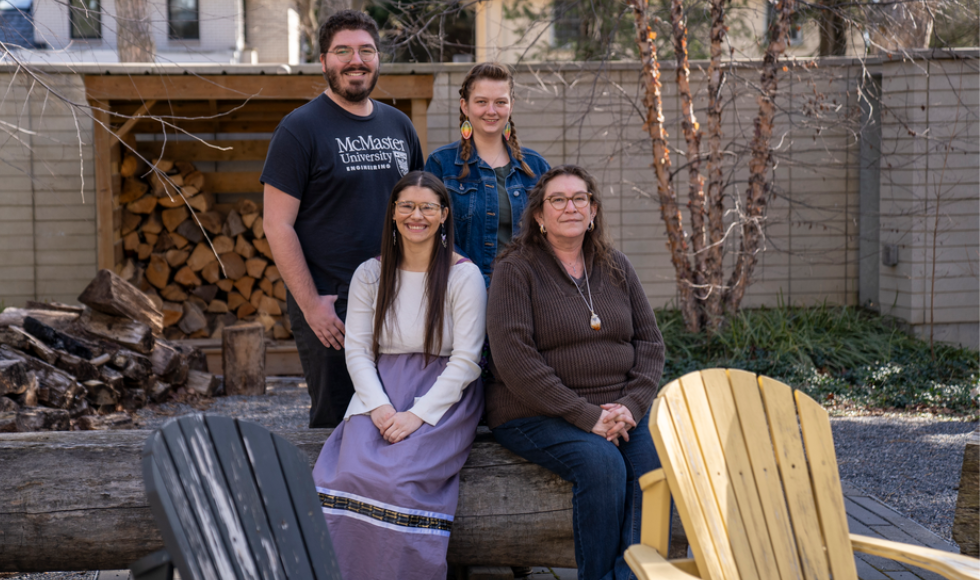
Clockwise from top left: McMaster students James Lemoine and Tekenikhon Doreen, Tracy Lynne Bomberry and Alexis Hachey-Brown say they believe the new financial assistance program for Indigenous students will live up to its name, ionkhihahonnién:ni, which means "they’re making a path for us" in the Mohawk language. (Photos by Georgia Kirkos, McMaster University)
James Lemoine is talking about being in high school while his single mom worked hard so he wouldn’t need a part-time job.
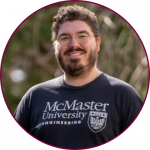 “She would tell me, ‘I’ll worry about the financial side of things, you worry about your education,” says LeMoine, now a PhD candidate and a teaching assistant in the Faculty of Engineering.
“She would tell me, ‘I’ll worry about the financial side of things, you worry about your education,” says LeMoine, now a PhD candidate and a teaching assistant in the Faculty of Engineering.
Lemoine is one of several Indigenous students at McMaster who shared their thoughts on an expanded financial aid program that includes a new bursary to support Indigenous students.
His story exemplifies what the financial assistance program is trying to address — easing the financial burden for Indigenous students.
The program has been named ionkhihahonnién:ni, which means “they’re making a path for us” in the Mohawk language. It assists with not only tuition, but also cost of living expenses such as housing, child care, food and transportation.
Prospective and current students, along with guidance counselors and community members, can access details about the new bursary program, and the Jay Treaty Fee Adjustment on McMaster’s website.
Application information will be available May 2024. Eligible applicants can anticipate receiving assistance starting the 2024-25 academic year.
Tailored to each student’s needs
The program represents McMaster’s commitment to fostering inclusivity and support within its community, says Sean Van Koughnett, associate vice-president, (Students and Learning) and Dean of Students.
“We recognize that Indigenous students face additional financial barriers to accessing and completing university,” Van Koughnett says.
“We wanted to create a program that would reduce the financial barriers that impede access and success. Some tuition waiver programs do not necessarily do that, because some of those students already receive tuition assistance through other means, and there are many other costs that go unaddressed.”
The program is open to members of the Haudenosaunee and Mississauga nations, whose traditional territories are the lands on which McMaster University is situated. They are eligible to apply even if they live elsewhere in Canada or internationally.
Alexis Hachey-Brown, a second-year student in Indigenous Studies, talks about growing up as an urban Indigenous youth.
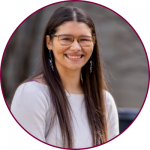 “I was raised in Hamilton, away from a lot of my Indigenous family and not immersed in the culture the same way that someone who lives in a reserve would be,” Hachey-Brown says.
“I was raised in Hamilton, away from a lot of my Indigenous family and not immersed in the culture the same way that someone who lives in a reserve would be,” Hachey-Brown says.
“I didn’t have much of a connection to my own community, which is Six Nations, until I got here.”
Through events and workshops organized by Indigenous Student Services, Hachey-Brown says she is now immersing herself in cultural experiences that she did not have elsewhere.
“The bursary will help students not only focus on their studies, but also give them time to connect with others and with their culture.”
Chrissy Doolittle, director of Indigenous Student Services, says a role within the department will now focus on supporting and advising students and on administering the bursary program.
“We developed a funding model in consultation with various campus and community partners that would be tailored to each student’s individual financial needs,” Doolittle says.
“This will allow the available funding to support as many students as possible, even within university budget constraints.”
As an additional benefit, the Indigenous Financial Aid Specialist will be available to work with all Indigenous students by providing dedicated support and equitable access to financial resources and financial literacy programs.
More opportunities for students
The specialist will also oversee Jay Treaty fee adjustments for eligible Indigenous students whose ancestral homelands are in the United States or out of province.
The role is a part of a collaborative initiative between Indigenous Student Services and the Aid & Awards Unit in the Office of the Registrar.
“We know that students who are able to continue to post-secondary find meaningful careers and that they invest back in the overall economy of Canada,” says Justine Henhawk-Bomberry, director of Post-Secondary Student Services at the Grand River Post Secondary Education Office, a role in which she supports Indigenous students who are interested in continuing their education after high school.
“I’m very happy this program will help address some of the additional stressors in students’ lives. Some students are more challenged than others in having their basic needs met.”
As a graduate of McMaster’s Honours Sociology program, Henhawk-Bomberry said it is gratifying to see more opportunities for students from Six Nations to attend university since she was a student herself.
To Tekenikhon Doreen, a second-year student in Honours Indigenous Studies, the bursary could mean more contact with her family, who are three hours away in Tyendinaga Mohawk Territory.
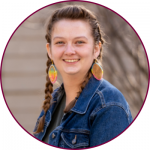 “Connection to family is everything and I only see them on reading breaks and over the holidays,” she says. “I just moved back to being closer to family after living in Edmonton for six and a half years. Your family helps you manage your mental health and emotions when you’re away from home attending a Western institution.”
“Connection to family is everything and I only see them on reading breaks and over the holidays,” she says. “I just moved back to being closer to family after living in Edmonton for six and a half years. Your family helps you manage your mental health and emotions when you’re away from home attending a Western institution.”
Tracy Lynne Bomberry says she sees others around her working full-time to pay for their living costs.
“A lot of mature students don’t live locally,” says Bomberry, a mature student herself in Indigenous Studies and History.
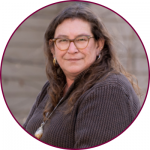 “If your car breaks down, and you don’t have money set aside for that, you might not make it to class. This bursary will make a difference.”
“If your car breaks down, and you don’t have money set aside for that, you might not make it to class. This bursary will make a difference.”

